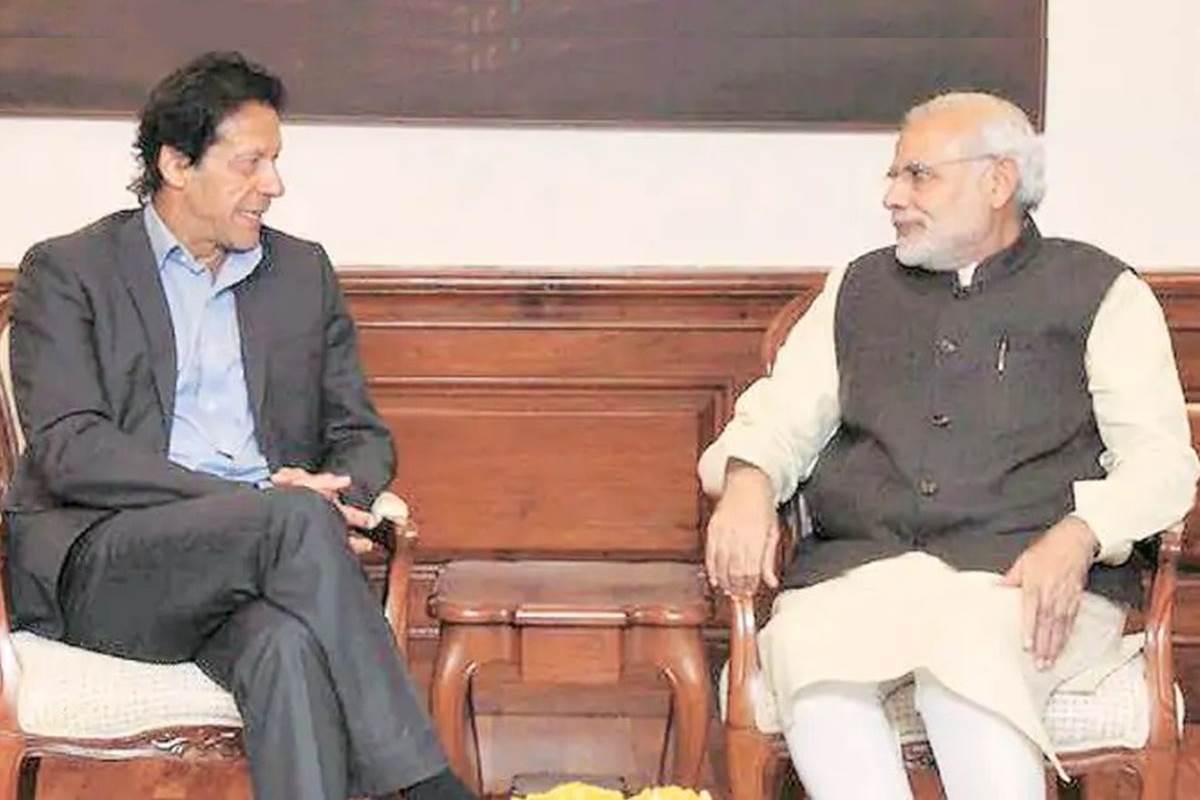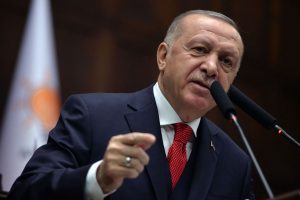Pakistan has tried to downplay India’s decision not to invite Imran Khan for Narendra Modi swearing-in on Thursday, claiming that the Indian Prime Minister’s “internal politics” does not permit him to extend an invitation to his Pakistani counterpart.
The government on Monday announced in New Delhi that it has invited leaders from BIMSTEC countries to Prime Minister Modi’s inauguration, leaving out Pakistan, which is not a part of the seven-member regional grouping. The BIMSTEC (Bay of Bengal Initiative for Multi-Sectoral Technical and Economic Cooperation) comprises Bangladesh, India, Myanmar, Sri Lanka, Thailand, Bhutan and Nepal.
Advertisement
Reacting to reports that India has not invited Prime Minister Khan to Prime Minister Modi’s inauguration, Foreign Minister Shah Mehmood Qureshi said a meeting for the sake of dialogue to find a solution to the Kashmir issue, as well as Siachen and Sir Creek disputes, would have been a significant measure instead of attending the swearing-in ceremony.
“His (Prime Minister Modi’s) entire focus (during the election campaign) was on Pakistan-bashing. It was unwise to expect that he can get rid of this narrative (soon),” Qureshi was quoted as saying by Dawn News. “India’s internal politics did not permit him to extend an invitation,” he said. Modi and Khan are scheduled to attend the Shanghai Cooperation Organisation (SCO) summit in Kyrgyzstan next month.
In 2014, then Pakistan premier Nawaz Sharif had attended Prime Minister Modi’s swearing-in held on May 26 in New Delhi when the leaders of SAARC countries were invited. Speaking to Geo News on Monday, Qureshi said Modi had congratulated Khan after he won the general election last year and wrote a letter as well.
Prime Minister Khan, breaking the ice in bilateral ties, spoke to his Indian counterpart Modi on Sunday and expressed his desire to work together for the betterment of their peoples. “Relations between the countries were based on reciprocity and PM Khan had congratulated Mr Modi as a goodwill gesture,” the Pakistani foreign minister said.
“Finding a new way (to resume dialogue) is also essential for them (India). If he (Modi) wants development of this region… the only way is to sit with Pakistan to find a solution. “It is in the interest of Pakistan to defuse tensions… Pakistan did not create tension,” Qureshi said.
Prime Minister Modi on Thursday led his Bharatiya Janata Party to a landmark victory for a second five-year term in office, winning 303 seats in the 543-member Lok Sabha. Tensions flared up between India and Pakistan after a suicide bomber of Pakistanbased Jaish-e-Muhammed (JeM) killed 40 CRPF personnel in Kashmir’s Pulwama district on February 14.
Amid mounting outrage, the Indian Air Force (IAF) carried out a counter-terror operation, hitting the biggest JeM training camp in Balakot, deep inside Pakistan on February 26. The next day, Pakistan Air Force retaliated and downed a MiG-21 in an aerial combat and captured an IAF pilot, who was handed over to India.
India’s policy of not having talks with Pakistan unless it stops cross border terrorism remains unchanged and no decision has been taken yet on any meeting between Prime Minister Narendra Modi and his Pakistani counterpart Imran Khan on the sidelines of the SCO summit in Bishkek next month, official sources said. India has not been engaging with Pakistan since early 2016 following a terror attack on the Indian Air Force base at Pathankot in January that year, maintaining that talks and terror cannot go together.
Modi is attending the annual summit of Shanghai Cooperation Organisation (SCO) in Kyrgyztan’s capital Bishkek on June 13-14. Khan is also scheduled to participate in the annual meet of the China dominated grouping. Government sources said no decision had been taken on any meeting between Modi and Khan on the sidelines of the SCO summit.
“A decision on the issue will be taken by the new government,” said a source.
In a reflection of India’s reluctance to engage with Pakistan, the government has preferred to invite leaders of the BIMSTEC (Bay of Bengal Initiative for Multi-Sectoral Technical and Economic Cooperation) countries for the swearing-in ceremony of Narendra Modi as prime minister for a second term on May 30. Besides India, BIMSTEC comprises Bangladesh, Myanmar, Sri Lanka, Thailand, Nepal and Bhutan.
In 2014, Modi had invited all SAARC leaders including the then Pakistan Prime Minister Nawaz Sharif for his swearingin ceremony, in a major initiative to reach out to the neighbourhood.
Sharif’s attendance at the swearing-in ceremony had triggered hopes of better ties between the two countries and there were several engagements between the leaders of the two countries. However, the ties derailed again after January 2016.
In a carefully crafted move, the government has this time decided to invite BIMSTEC leaders apart from Kyrgyz President Sooronbay Jeenbekov, who is the current chair of the Shanghai Cooperation Organisation, and Mauritius Prime Minister Pravind Jugnauth for the swearing-in ceremony.
(With PTI)
















